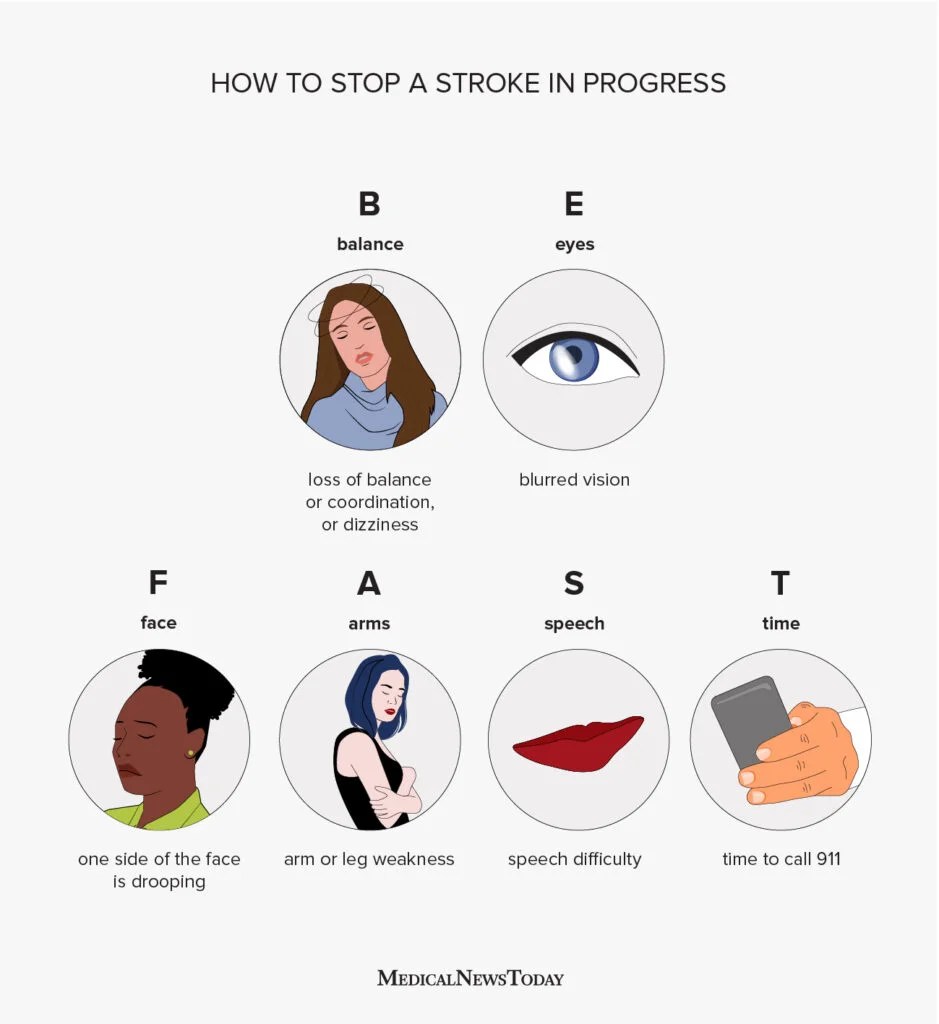
Have you ever wondered about the symptoms of a stroke? It’s important to know what to look out for, as recognizing the signs early can make a significant difference in someone’s recovery. In this article, we will explore the various symptoms that may indicate a stroke, allowing you to be better informed and prepared to act swiftly if the need arises. So let’s dive in and learn about the symptoms of a stroke together!
Physical Symptoms
Sudden numbness or weakness of the face, arm, or leg
One of the most common physical symptoms of a stroke is a sudden numbness or weakness of the face, arm, or leg on one side of the body. This can be a frightening experience, as it may feel as if part of your body has suddenly “gone to sleep.” It is important to seek medical attention immediately if you experience this symptom, as it could be a sign of a stroke.
Difficulty speaking or understanding speech
Another physical symptom of a stroke is difficulty speaking or understanding speech. You may find it challenging to form words or sentences properly, or you may struggle to comprehend what others are saying to you. This can be extremely frustrating and can make communication difficult. If you or someone you know is experiencing this symptom, it is crucial to seek medical help right away.
Trouble seeing in one or both eyes
Vision problems are also common physical symptoms of a stroke. You may suddenly have trouble seeing in one or both eyes, which could include a loss of vision, double vision, or blurred vision. This can make it challenging to read or perform tasks that require visual acuity. If you notice any sudden changes in your vision, it is important to consult a healthcare professional as soon as possible.
Severe headache with no known cause
A severe headache with no known cause is another potential physical symptom of a stroke. This headache can be intense and may come on suddenly, often described as the worst headache of one’s life. It is crucial not to ignore or dismiss this symptom, as it could be a warning sign of a stroke. Seek immediate medical attention if you experience a severe headache that comes on suddenly.
Dizziness or loss of balance
Dizziness or loss of balance can also be physical symptoms of a stroke. You may feel lightheaded, unsteady on your feet, or have difficulty maintaining your balance. This can make it challenging to walk or perform daily activities. If you experience dizziness or a loss of balance that is sudden or severe, it is important to seek medical help promptly to determine the cause.
Cognitive Symptoms
Confusion or disorientation
Confusion or disorientation is a common cognitive symptom of a stroke. You may feel mentally foggy, have difficulty understanding your surroundings, or become forgetful. This can be a distressing symptom, as it can disrupt your ability to function and communicate effectively. If you or someone you know experiences confusion or disorientation, it is crucial to seek medical attention.
Difficulty with memory or recall
Difficulty with memory or recall is another cognitive symptom of a stroke. You may have trouble remembering recent events or struggle to recall important information. This can be frustrating and may impact your daily life and overall well-being. Prompt medical evaluation is essential if you experience ongoing memory difficulties after a stroke.
Trouble concentrating or paying attention
Difficulty concentrating or paying attention is a cognitive symptom commonly associated with a stroke. You may find it challenging to stay focused on tasks or have difficulty processing information. This can make it difficult to complete work or engage in conversations effectively. If you experience persistent trouble with concentration or attention, it is important to consult a healthcare professional.
Inability to recognize familiar objects or people
Inability to recognize familiar objects or people is a cognitive symptom that can occur after a stroke. This can be distressing, as it can make you feel disconnected from your surroundings and loved ones. It is essential to seek medical advice if you experience this symptom to determine the underlying cause and receive appropriate treatment.
Impaired judgment or decision-making
Impaired judgment or decision-making is another cognitive symptom that can be associated with a stroke. You may find it difficult to make decisions, assess risks accurately, or evaluate consequences effectively. This can impact your ability to navigate daily life and can have significant consequences. Seeking medical help is crucial if you experience ongoing issues with judgment or decision-making.
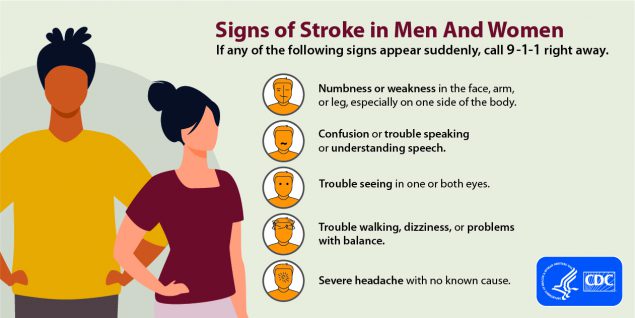
This image is property of www.cdc.gov.
Communication Symptoms
Slurred speech or difficulty in speaking clearly
Slurred speech or difficulty in speaking clearly is a common communication symptom of a stroke. Your speech may become slurred or garbled, making it challenging for others to understand you. This can be frustrating and may lead to feelings of isolation or withdrawal. It is important to seek immediate medical attention if you experience sudden difficulty in speaking clearly.
Trouble understanding spoken or written language
Another communication symptom of a stroke is trouble understanding spoken or written language. You may have difficulty comprehending what others are saying to you or struggle to read and understand written words. This can be particularly challenging in social or professional settings. Seeking medical advice is crucial if you experience ongoing difficulty in understanding language.
Difficulty in finding the right words to express thoughts
Finding difficulty in finding the right words to express thoughts is a communication symptom that can occur after a stroke. You may struggle to articulate your ideas or have trouble retrieving specific words from your memory. This can be frustrating and may impact your ability to engage in conversations effectively. Seeking medical evaluation is important if this symptom persists.
Lack of coordination between speech muscles
A lack of coordination between speech muscles is another communication symptom that can be associated with a stroke. This may cause you to have difficulty controlling the muscles in your mouth and throat, resulting in slurred or unclear speech. If you experience persistent coordination issues in your muscles involved in speech, it is important to consult a healthcare professional.
Sensory Symptoms
Numbness or tingling sensation in the face, arms, or legs
Numbness or tingling sensation in the face, arms, or legs is a common sensory symptom of a stroke. You may experience a loss of feeling or a “pins and needles” sensation in these areas. This can be alarming and may make it difficult to perform tasks that require fine motor skills. Seeking immediate medical attention is essential if you experience sudden or severe numbness or tingling.
Loss of sensation or abnormal sensitivity to touch, temperature, or pain
Loss of sensation or abnormal sensitivity to touch, temperature, or pain is another sensory symptom that can occur after a stroke. You may have difficulty feeling sensations or experience heightened sensitivity to certain stimuli. This can impact your ability to navigate the world and may require adaptations in daily life. Consulting a healthcare professional is important if you experience ongoing sensory disturbances.
Partial or complete loss of vision in one or both eyes
Partial or complete loss of vision in one or both eyes is a sensory symptom commonly associated with a stroke. You may suddenly experience a darkening or blurring of your vision, which can significantly impact your quality of life. It is crucial to seek immediate medical attention if you experience sudden changes in your vision, as prompt treatment may be necessary.
Double vision or blurred vision
Double vision or blurred vision can be sensory symptoms of a stroke. You may see two images instead of one or have difficulty focusing on objects. This can make it challenging to read, drive, or perform other visual tasks. If you experience double vision or blurred vision that is sudden or persistent, it is important to consult a healthcare professional for evaluation.
Trouble with spatial awareness
Trouble with spatial awareness is another sensory symptom that can occur after a stroke. You may struggle to gauge distances accurately or have difficulty coordinating movements in space. This can make daily tasks such as walking or reaching for objects challenging. Seeking medical advice is essential if you experience ongoing issues with spatial awareness.
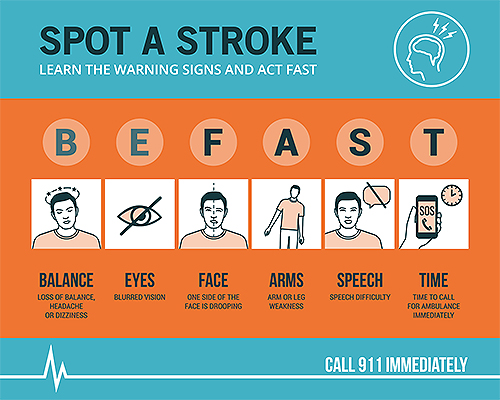
This image is property of www.neuroskills.com.
Emotional Symptoms
Sudden mood swings or changes in personality
A stroke can also manifest in emotional symptoms, such as sudden mood swings or changes in personality. You may experience unexplained shifts in emotion, alternating between sadness, anger, and happiness. These mood swings can be distressing and may impact your relationships and overall well-being. Seeking support from loved ones and healthcare professionals is important during this time.
Feelings of depression or intense sadness
Feelings of depression or intense sadness can be prevalent emotional symptoms following a stroke. You may experience a deep sense of sorrow, hopelessness, or a loss of interest in activities you once enjoyed. It is crucial to seek help from mental health professionals who can provide the appropriate support and treatment to manage depression.
Unexplained bouts of crying or laughter
Unexplained bouts of crying or laughter, also known as emotional lability, can occur after a stroke. You may find yourself crying or laughing uncontrollably, even when the situation does not warrant such a reaction. This can be embarrassing or confusing for those experiencing it. Seeking medical advice is vital if you are experiencing unexplained emotional outbursts.
Lack of motivation or interest in previously enjoyable activities
A lack of motivation or interest in previously enjoyable activities is another emotional symptom that can occur after a stroke. You may find it challenging to engage in activities that once brought you joy or fulfillment. It is important to seek support from healthcare professionals and loved ones to regain motivation and find new ways to enjoy life post-stroke.
Behavioral Symptoms
Sudden aggression, irritability, or impulsivity
Sudden aggression, irritability, or impulsivity can be behavioral symptoms associated with a stroke. You may find yourself easily frustrated, getting angry more frequently, or behaving impulsively. These behavioral changes can be challenging to manage, both for the person experiencing them and for their loved ones. Seeking assistance from healthcare professionals and learning coping strategies is crucial in managing these symptoms.
Changes in appetite or eating habits
Changes in appetite or eating habits can also be behavioral symptoms following a stroke. You may experience a loss of appetite or develop new food preferences. These changes can impact your overall nutrition and well-being. It is important to consult a healthcare professional who can provide guidance on maintaining a healthy diet and managing any changes in appetite.
Sleep disturbances, such as insomnia or excessive sleepiness
Sleep disturbances, such as insomnia or excessive sleepiness, can occur after a stroke. You may find it difficult to fall asleep, stay asleep, or experience excessive daytime sleepiness. These disruptions in sleep can affect your overall health and quality of life. Seeking medical evaluation and discussing sleep concerns with healthcare professionals can assist in managing these symptoms.
Experiencing intense anxiety or fear
Experiencing intense anxiety or fear is another behavioral symptom that can be associated with a stroke. You may find yourself worrying excessively or feeling overwhelmed by fear. These emotions can be debilitating and impact your overall well-being. Seeking support from mental health professionals who specialize in anxiety disorders can provide strategies to manage these intense emotions.
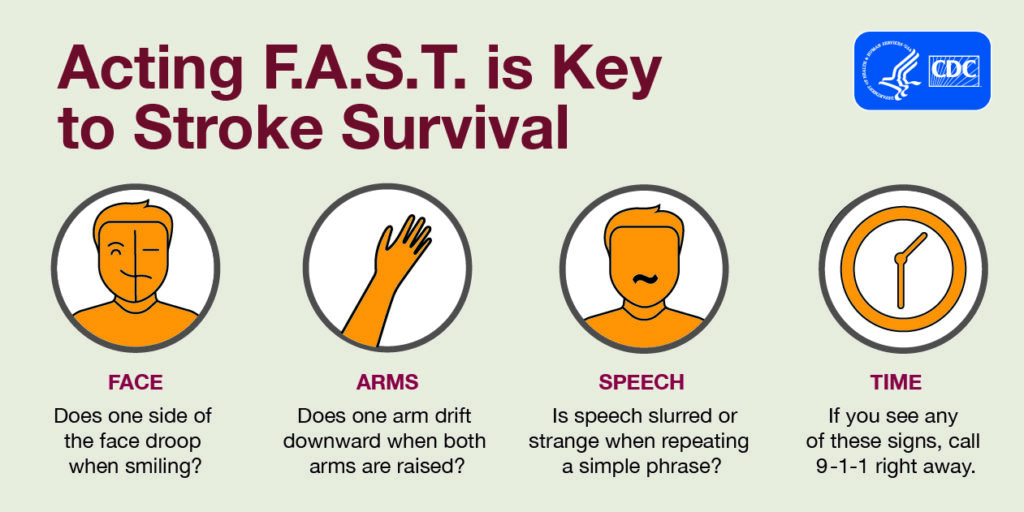
This image is property of www.nia.nih.gov.
Motor Symptoms
Difficulty with coordination or balance
Difficulty with coordination or balance is a common motor symptom of a stroke. You may have trouble controlling your movements or stumble frequently. This can make it difficult to perform tasks that require fine motor skills or to walk without assistance. Seeking physical therapy and rehabilitation services can help improve coordination and balance post-stroke.
Weakness or paralysis in one side of the body
Weakness or paralysis in one side of the body is a motor symptom that often occurs after a stroke. You may experience a loss of strength or an inability to move one side of your body effectively. This can impact your mobility and daily activities. Rehabilitation services and working with a healthcare team specializing in stroke recovery can aid in regaining strength and mobility.
Tremors or uncontrollable shaking
Tremors or uncontrollable shaking can be motor symptoms associated with a stroke. You may experience involuntary movements or shaking in certain parts of your body. This can affect your ability to perform tasks that require fine motor skills. Seeking medical evaluation and working with occupational therapists can assist in managing these tremors.
Difficulty in walking or maintaining a steady gait
Difficulty in walking or maintaining a steady gait is another motor symptom that can occur after a stroke. You may find it challenging to walk without assistance or experience a shuffling gait. This can impact your independence and overall quality of life. Working with physical therapists and utilizing mobility aids, if necessary, can help improve walking ability post-stroke.
Visual Symptoms
Loss of vision in one or both eyes
Loss of vision in one or both eyes is a visual symptom commonly associated with a stroke. You may experience a sudden or gradual loss of vision, which can significantly impact your daily life and independence. Seeking immediate medical attention is crucial if you notice changes in your vision to receive appropriate treatment and support.
Double vision or blurred vision
Double vision or blurred vision can also be visual symptoms of a stroke. You may experience seeing two images instead of one or have difficulty focusing on objects. This can impact your ability to read, drive, or perform other visual tasks. If you experience double vision or blurred vision that persists or worsens, it is important to consult a healthcare professional.
Seeing flashing lights or bright spots
Seeing flashing lights or bright spots is another visual symptom that can occur after a stroke. You may perceive these visual disturbances even in the absence of external stimuli. This can be disorienting and affect your visual perception. Seeking medical evaluation is important to determine the cause and receive appropriate treatment for these visual disturbances.
Inability to focus or track moving objects
Inability to focus or track moving objects can be a visual symptom of a stroke. You may have difficulty maintaining focus or struggle to follow objects with your eyes. This can make tasks such as reading or driving challenging. Consultation with healthcare professionals who specialize in vision rehabilitation can aid in managing visual impairments post-stroke.
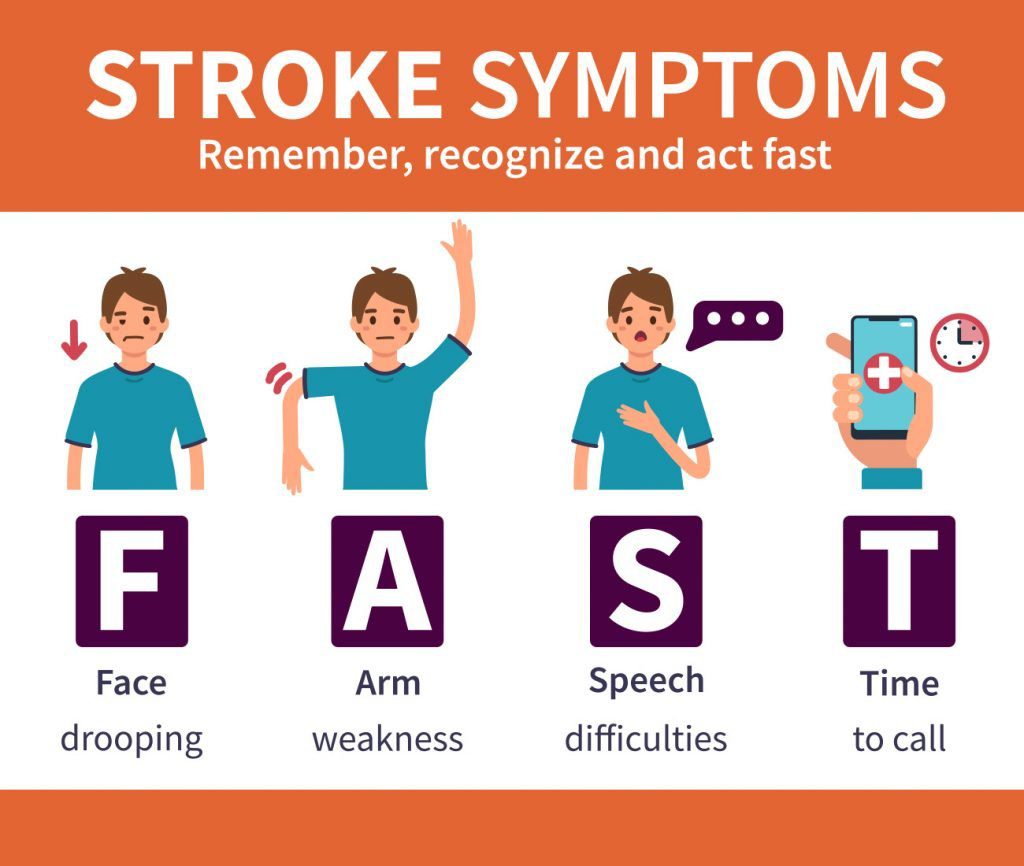
This image is property of comprehensiveprimarycare.com.
Swallowing and Digestive Symptoms
Difficulty swallowing (dysphagia)
Difficulty swallowing, also known as dysphagia, can occur after a stroke. You may have trouble moving food or liquids from your mouth into your stomach, which can lead to choking or coughing. This can be a serious and potentially life-threatening symptom. It is crucial to seek medical assistance if you experience difficulty swallowing to prevent complications and receive appropriate treatment.
Choking or coughing while eating or drinking
Choking or coughing while eating or drinking may also be swallowing and digestive symptoms associated with a stroke. You may find it challenging to safely swallow food or liquids without experiencing choking or coughing episodes. Seeking evaluation by a speech-language pathologist and working with a dietitian can assist in managing swallowing difficulties and ensuring proper nutrition.
Reflux or regurgitation of food
Reflux or regurgitation of food can be a common swallowing and digestive symptom after a stroke. You may experience the backflow of stomach contents into the esophagus, causing discomfort or a sour taste in your mouth. Working with a healthcare professional can help manage reflux symptoms and develop strategies to prevent regurgitation of food.
Loss of appetite or unintentional weight loss
A loss of appetite or unintentional weight loss is another swallowing and digestive symptom commonly associated with a stroke. You may experience a reduced desire to eat or have difficulty consuming enough nutrients due to swallowing difficulties or changes in taste perception. It is important to consult a registered dietitian who can provide guidance on maintaining proper nutrition during stroke recovery.
Digestive problems, such as nausea or vomiting
Digestive problems, such as nausea or vomiting, can occur after a stroke. You may experience feelings of queasiness or have episodes of vomiting. These symptoms can impact your ability to maintain proper nutrition and overall well-being. Seeking medical evaluation can help identify the cause of these digestive problems and provide appropriate treatment options.
Cardiovascular Symptoms
Chest pain or discomfort
Chest pain or discomfort can be a cardiovascular symptom of a stroke. You may experience a tightness or pressure in your chest, which can be alarming. It is crucial to seek immediate medical attention if you experience chest pain, as it can indicate a potentially life-threatening condition.
Rapid or irregular heartbeat
Rapid or irregular heartbeat can also be cardiovascular symptoms associated with a stroke. Your heart may beat faster than usual or have an irregular rhythm. This can cause sensations of palpitations or an awareness of your heart’s rhythm. Seeking medical evaluation is important to assess your heart’s health and determine appropriate treatment options.
Shortness of breath or difficulty breathing
Shortness of breath or difficulty breathing can occur in conjunction with a stroke. You may find it challenging to catch your breath or feel as if you cannot take in enough air. It is crucial to seek immediate medical attention if you experience sudden or severe shortness of breath, as it can indicate a serious medical condition.
Sudden drop in blood pressure
A sudden drop in blood pressure can also be a cardiovascular symptom associated with a stroke. You may experience dizziness, lightheadedness, or a loss of consciousness. It is important to seek immediate medical attention if you experience a sudden drop in blood pressure to prevent complications and receive appropriate treatment.
In conclusion, the symptoms of a stroke can vary depending on the area of the brain affected. It is important to be aware of these symptoms so that you can seek medical help promptly if needed. Remember, time is of the essence when it comes to stroke, and quick medical intervention can greatly improve the chances of a successful recovery.
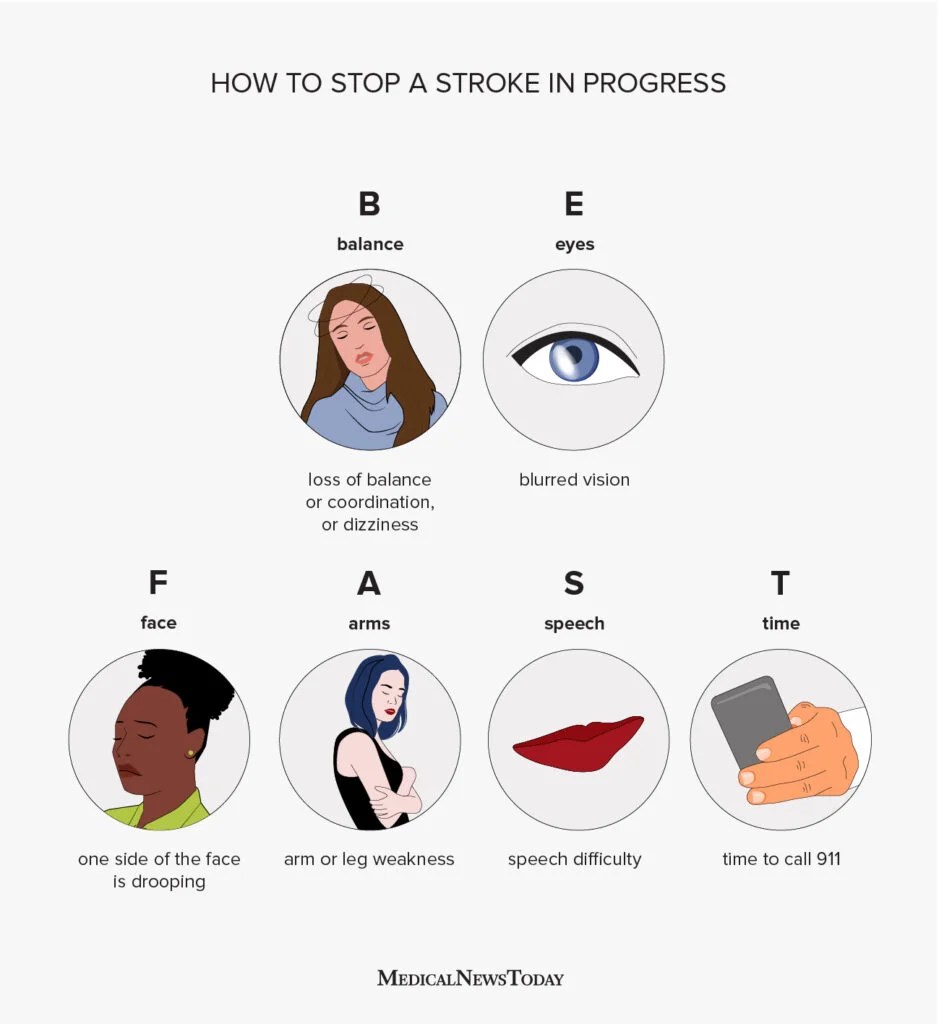
This image is property of i0.wp.com.